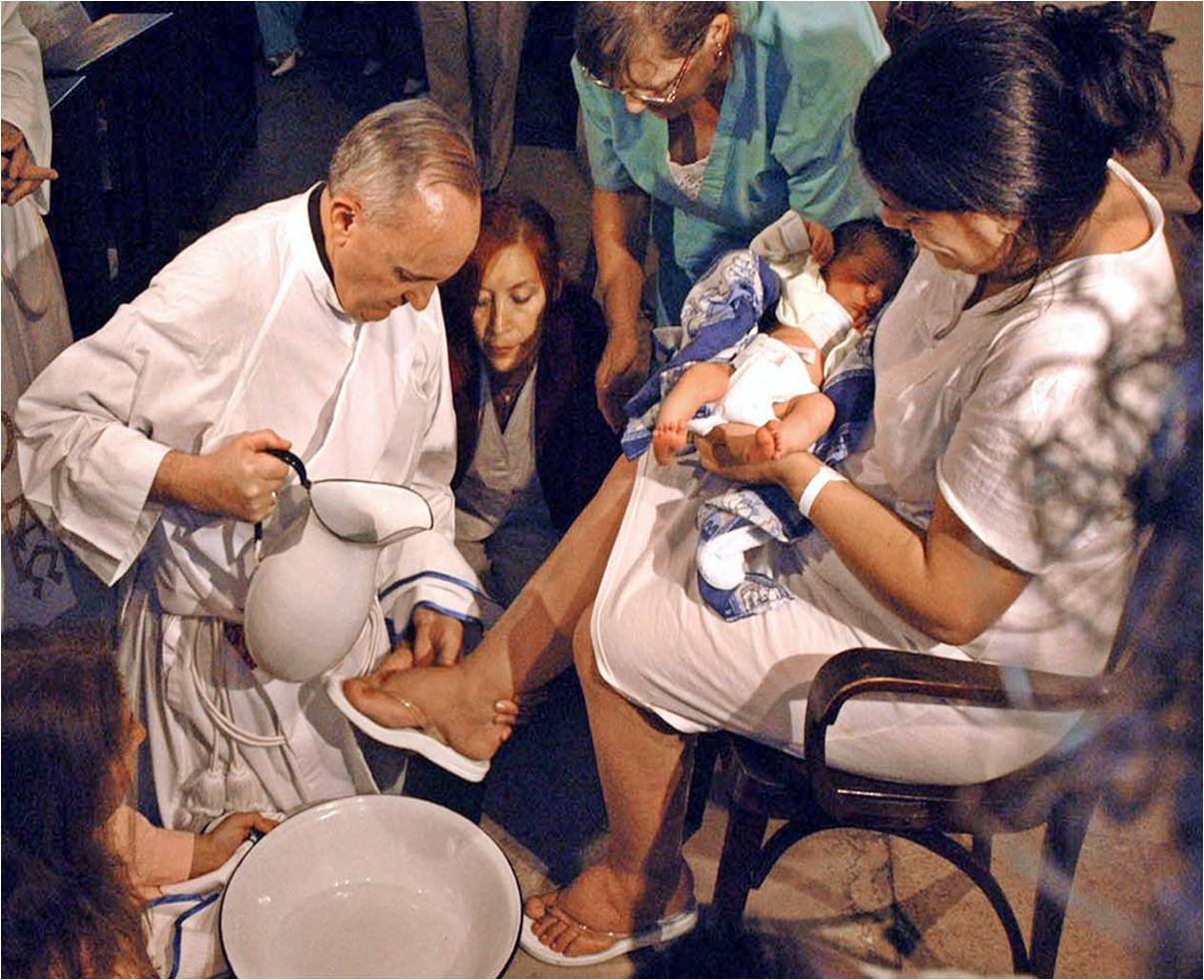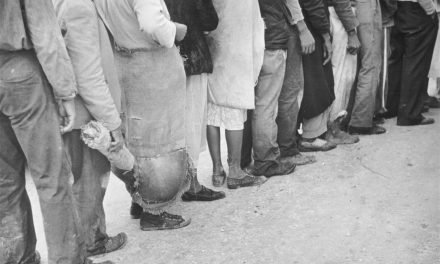This coming Monday, as a nation, we will celebrate Labor Day. Often, Labor day is simply seen as marking the “end of summer.” Yet, every year, the USCCB Committee of Domestic Justice and Human Development releases a statement reminding all of us why it is we, as a nation, celebrate labor day.
In this year’s powerful statement, “Human Cost & Moral Challenges of a Broken Economy,” Bishop Stephen Blaire, Bishop of Stockton, CA and Chair of the Committee on Domestic Justice & Human Development offers a comprehensive and challenging look at the state of the US economy and the moral challenges it presents for Christians.
As we approach Labor Day 2011, over nine percent of Americans are looking for work and cannot find it. Other workers fear they could lose their jobs. Joblessness is higher among African American and Hispanic workers. Wages are not keeping up with expenses for many. Countless families have lost their homes, and others owe more on their homes than they are worth. Union workers are part of a smaller labor movement and experience new efforts to restrict collective bargaining rights. Hunger and homelessness are a part of life for too many children. Most Americans fear our nation and economy are headed in the wrong direction. Many are confused and dismayed by polarization over how our nation can work together to deal with joblessness and declining wages, debt and deficits, economic stagnation, and global fiscal crises. Workers are rightfully anxious and fearful about the future. These realities are at the heart of the Church’s concerns and prayers on this Labor Day. As the Second Vatican Council insisted, the ‘grief and anguish’ of the people of our time, “especially of those who are poor or afflicted in any way . . . are the grief and anguish of the followers of Christ as well” (Gaudium et Spes, no. 1).
Throughout his statement, Bishop Blaire draws our attention both to the sobering reality of unemployment and inequality and the insights that can be found within the Catholic social tradition. On this hundred and twentieth anniversary of Rerum Novarum (On the Condition of Workers), Bishop Blaire states that Leo XIII’s landmark encyclical:
has served as the cornerstone for more than a century of Catholic social teaching and the inspiration for this year’s Labor Day statement. This timely encyclical lifted up the inherent dignity of the worker in the midst of massive economic changes. Pope Leo’s powerful letter rejected both unbridled capitalism that could strip workers of their God-given human dignity and dangerous socialism that could empower the state over all else in ways that destroy human initiative. This encyclical is best remembered for Pope Leo’s prophetic call for the Church to support workers’ associations for the protection of workers and the advancement of the common good
Unemployment, from the perspective of Christian ethics, always presents a significant moral challenge -and not only because the lack of income leads to greater poverty. As John Paul II reiterates in Laborem Exercens, Catholic social teaching focuses on the dignity of work as well as material necessity of employment/wages for housing, food, etc. 14 million people are unemployed and millions more are suffering this Labor Day. Many of those unemployed have stopped looking for work, as hoplessness and despair grow. Bishop Blaire challenges all of us to focus more on how we, as a society, will get millions of our brothers and sisters back to work, participating and sharing in the common good.
Reaffirming long-established Church teaching on the dignity of work, the rights of workers, and the centrality of the common good, Bishop Blaire offers his vision of a way forward to healing a broken economy:
Sometimes economic troubles bring out the worst in us. Uncertainty and fear compel us to fight for our own interests and to preserve our own advantages. There is too much finger pointing and blaming of others and efforts to take advantage in political and economic arenas. We have seen efforts to limit or abolish elements of collective bargaining and restrict the roles of workers and their unions. Some demonize the market or government as the source of all our economic problems. Immigrants have been unfairly blamed for some of the current economic difficulties. Too often, the loudest voices often get the most attention and a predictable and unproductive cycle of blame and evasion takes place, but there is little effective action to address fundamental problems.
There is another way to respond to the difficult situation in which we find ourselves. We can understand and act like we are part of one economy, one nation, and one human family. We can acknowledge our responsibility for the ways–large or small–we contributed to this crisis. We can all accept our responsibility for working together to overcome this economic stagnation and all that comes with it. We can clearly respect the legitimacy and roles of others in economic life: business and labor, private enterprise and public institutions, for profit and non-profit, religious and academic, community and government. We can avoid challenging the motives of others. We can advocate our principles and priorities with conviction, integrity, civility, and respect for others. We can look for common ground and seek the common good. We can encourage all the institutions in our society to work together to reduce joblessness, promote economic growth, overcome poverty, increase prosperity, and make the shared sacrifices and–even compromises–necessary to begin to heal our broken economy.
I highly recommend the full text of Bishop Blaire’s sobering account of our current economic reality and his eloquent aritculation of Catholic social teaching’s wisdom. This year’s Labor Day Statment reminds us of the human cost of business as usual and poses a clear moral challenge to us all.




I appreciated Archbishop Dolan’s reflections on the history of Labor Day: http://blog.archny.org/?p=1635.